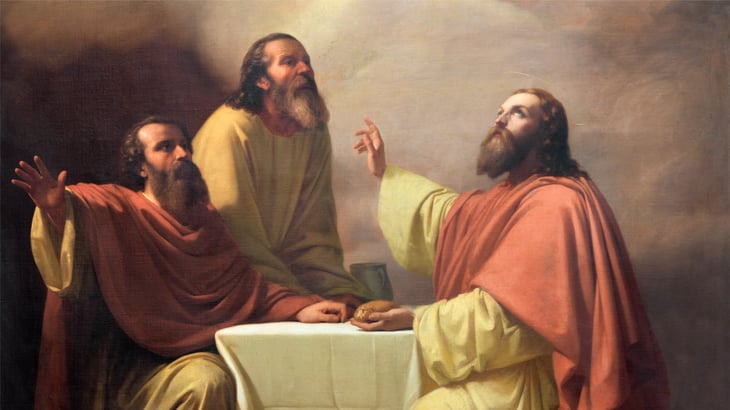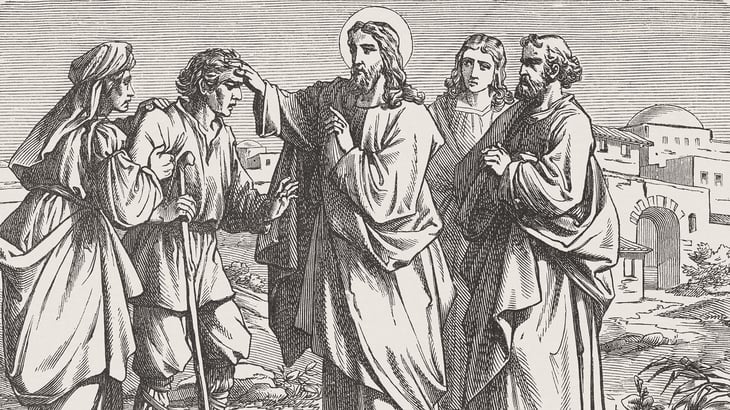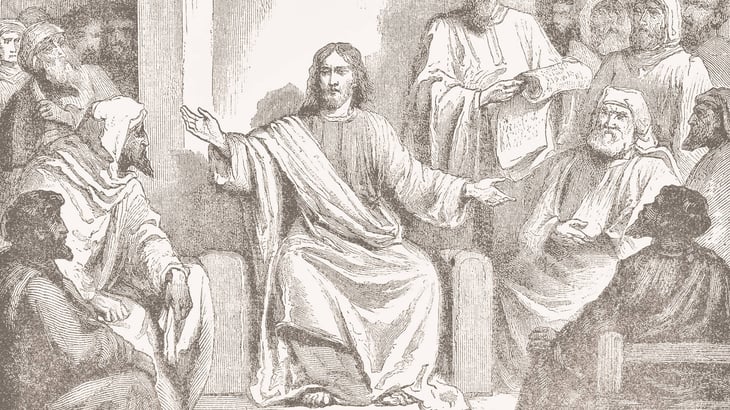God’s Gifts in James
The following is an excerpt from Dr. Curtis Giese’s Concordia Commentary on James. It considers God’s role as a gift giver and unchanging figure.
Digging Deeper into Scripture: Mark 13:24–37
In this passage, Christ alludes to the end times and His second coming on Judgment Day. He also asserts that it is only the Father who knows when this day will come. He does all this in Jerusalem, just before Holy Week.
The Holy Spirit in Chronicles
The following is an excerpt from volume 1 of The Lutheran Bible Companion on the action of the Holy Spirit in 1 Chronicles and 2 Chronicles.
Doers of the Word in James
In Dr. Curtis Giese’s Commentary on James, Giese gives particular attention to James’s meaning in his use of specific words, including “faith,” “justification,” “Law,” and “Gospel.” In this excerpt, Giese looks at the implication and meaning of “doers” and “Word” in James 1:22.
Digging Deeper into Scripture: Mark 10:46–52
This passage marks a turning point in Jesus’ ministry. He completes His work in Judea and Perea and moves toward Jerusalem, where our Lord will make His triumphant entry and begin Passion Week, culminating in the cross.
Infertility in the Bible
One painful experience that is repeated throughout the Scriptures is infertility. It’s surprising how many biblical stories involve infertility. Abraham and Sarah (Genesis 11-21), Isaac and Rebekah (Genesis 25), Rachel (Genesis 29-30), Samson’s parents (Judges 13), Hannah (1 Samuel 1-2), Zechariah and Elizabeth (Luke 1) all experience the pain of infertility. Each deals with this difficulty for years. In many of the cases above, God speaks a word directly to those who are experiencing infertility and promises the birth of a child. Some do not have to wait long for the promise to be fulfilled (Samson’s parents, Zechariah and Elizabeth). Some have to wait much longer (Abraham and Sarah).
Digging Deeper into Scripture: Mark 9
In Mark 9:30-37, Jesus’ disciples demonstrate concern over who is the greatest. The issue of rank among the twelve takes on new meaning as we consider the context of the passage.
Digging Deeper into Scripture: Mark 7
Mark’s Gospel is one of immediacy. Without the account of John the Baptist’s birth or that of Jesus Christ, Mark moves immediately to Jesus calling the disciples, healing, casting out demons, cleansing the leper, teaching parables, and raising the dead. In Mark, Jesus also feeds the five thousand and walks on water. His ministry created quite a stir. So much so that the Pharisees and teachers of the law came from Jerusalem to investigate—as seen in Mark 7:1–13. This investigation was likely motivated by jealousy, insecurity, and fascination or curiosity.
Redemption and Symbolism in Ruth
This blog post is adapted from Lutheran Bible Companion, Volume 1: Introduction and Old Testament.
One of the first matters to require attention is the real import of Ruth’s oft-quoted speech in 1:16–17, expressing her resolve to accompany Naomi. One should take care neither to read into Ruth’s words more than is actually said nor fail to hear them in total context.
Digging Deeper into Scripture: Genesis 9
Relief had finally come. God created Adam and Eve perfectly. But their wicked transgressions brought sin into the world, taking the Lord’s unblemished creation into destruction. Adam and Eve were expelled from the Garden of Eden, forced to work a stubborn earth, and forced to give birth in pain. Their son Cain killed his brother, Abel, confirming the wickedness of man’s heart.
Seeing this egregious depravity in humanity, God chose to flood the earth, destroying everything. Yet He kept Noah in the faith, making him blameless among his generation. God instructed this servant to build an ark so a pair of every living creature, male and female, could reside during the deluge.





















